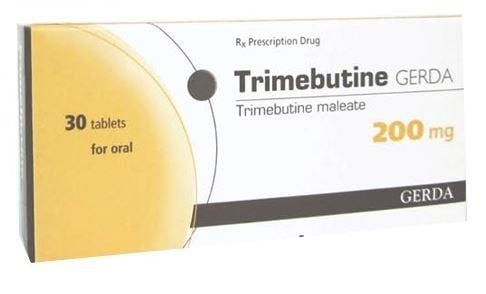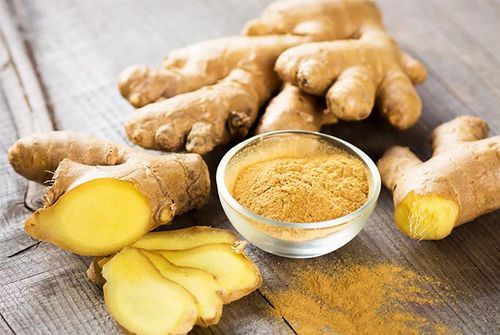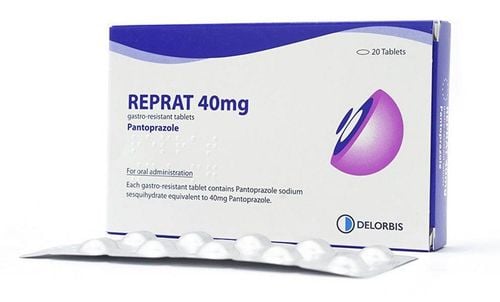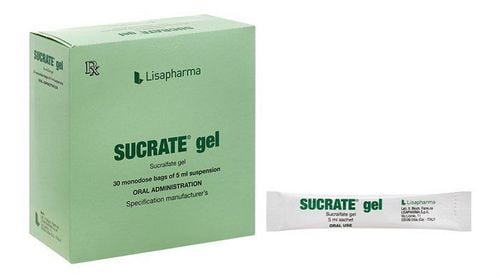Posted by Master, Doctor Mai Vien Phuong - Department of Examination & Internal Medicine - Vinmec Central Park International General Hospital
1. Diet and Nutrition for Gastroesophageal Reflux Disease (GERD)
Acid reflux occurs when acid flows back from the stomach into the esophagus. This is a common condition but can lead to complications or uncomfortable symptoms, such as heartburn.
One reason this condition occurs is the weakening or damage of the lower esophageal sphincter (LES). Normally, the LES closes to prevent stomach contents from flowing back into the esophagus.
The food you eat affects the amount of acid your stomach produces. Eating the right types of food is key to managing acid reflux or gastroesophageal reflux disease (GERD), a severe chronic form of acid reflux.
2. Foods that may help ease your symptoms.
Acid reflux symptoms may result from stomach acid coming into contact with the esophagus, causing irritation and pain. If you have excessive acid, you can add these specific foods into your diet to help control acid reflux symptoms.
None of these foods can cure your condition, and the decision to use specific ones to ease your symptoms should be based on your personal experience with them.
Vegetables
Natural vegetables are low in fat and sugar, and they help reduce stomach acid. Good options include green beans, broccoli, asparagus, cauliflower, leafy greens, potatoes, and cucumbers.
Ginger
Ginger has natural anti-inflammatory properties and is a natural solution for heartburn and other digestive issues. You can add grated or sliced ginger to recipes, smoothies, or enjoy it as ginger tea.
Oats
Oatmeal
Fruits
Non-citrus fruits, such as melons, bananas, apples, and pears, are less likely to trigger acid reflux symptoms compared to acidic fruits.
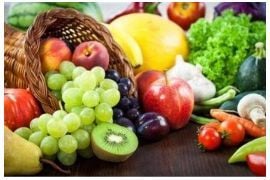
Lean Meat and Seafood
Lean meats, such as chicken, turkey, fish, and seafood, are low in fat and can reduce acid reflux symptoms. Try baked or boiled eggs.
Egg Whites
Egg whites are a good choice. However, avoid egg yolks, as they are high in fat and may trigger acid reflux symptoms.
Healthy Fats
Sources of healthy fats include avocados, walnuts, flaxseeds, olive oil, sesame oil, and sunflower oil. Reduce your intake of saturated and trans fats, and replace them with healthier unsaturated fats.
3. Be careful with foods that trigger your symptoms
Heartburn is a common symptom of acid reflux and GERD. You may feel a burning sensation in your stomach or chest after eating a large meal or certain types of foods. GERD can also cause vomiting or regurgitation when acid moves into the esophagus.
Other symptoms include:
- Dry cough
- Sore throat
- Bloating
- Burping or hiccups
- Difficulty swallowing
- Feeling a lump in the throat.
Many people with GERD find that certain foods trigger their symptoms. There is no single diet that can prevent all GERD symptoms, as triggers differ among individuals.
To identify the specific foods that trigger your symptoms, pay close attention to your diet.
- What types of foods do you eat?
- When do you eat during the day?
- What symptoms do you experience?
Keep a food journal for at least a week. It can be very helpful to monitor your food intake over a longer period if your diet changes. You can use this journal to identify specific foods and drinks that affect your GERD.
Additionally, the dietary and nutrition tips here serve as a starting point for planning your meals. Use this guide along with your food journal and recommendations from your doctor. The goal is to minimize and manage your symptoms.
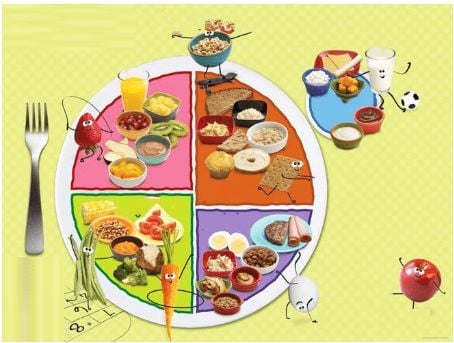
4. Common foods that can cause acid reflux
Although doctors debate which foods truly cause reflux symptoms, certain foods have been shown to cause problems for many people. To manage your symptoms, you can start by eliminating the following foods from your diet.
High-Fat Foods
Fried and high-fat foods can cause the lower esophageal sphincter to relax, allowing more stomach acid to reflux into the esophagus. These foods also slow down the stomach’s emptying process.
Eating high-fat foods increases your risk of experiencing reflux symptoms, so reducing your daily fat intake may be helpful.
Tomatoes and Citrus Fruits
Fruits and vegetables are important in a healthy diet. However, certain fruits can trigger or worsen GERD symptoms, especially those with high acidity. If you frequently experience acid reflux, you should reduce or eliminate foods such as oranges, grapefruits, pineapples, tomatoes, etc.
Chocolate
Chocolate contains an ingredient called methylxanthine. This ingredient has been shown to relax smooth muscle in the lower esophageal sphincter and increase reflux.
Garlic, Onions, and Spicy Foods
Spicy and heavily seasoned foods, such as onions and garlic, can trigger heartburn symptoms in many people. These foods do not cause reflux in everyone, but if you consume a lot of onions or garlic, be sure to monitor your meals carefully in your food journal. Some of these foods, along with spicy foods, may bother you more than others.
Caffeine
People with acid reflux may notice their symptoms appear after drinking morning coffee. This is because caffeine is a trigger for acid reflux.

Mint
Mint and mint-flavored products, such as chewing gum and mints, can also trigger acid reflux symptoms.
Other Foods
Although the list above includes common triggers, you may not tolerate other foods. You may consider eliminating the following foods for three to four weeks to see if your symptoms improve: milk, baked goods such as bread and crackers, and whey protein.
5. Lifestyle Changes
In addition to managing reflux symptoms through diet and nutrition, you can control your symptoms by making lifestyle changes. Try the following tips:
- Use antacids and other medications that help reduce acid production. (Excessive use can cause negative side effects.)
- Maintain a healthy weight.
- Chew non-mint-flavored gum.
- Avoid drinking alcohol.
- Quit smoking.
- Don't overeat and eat slowly.
- Stay upright for at least two hours after eating.
- Avoid wearing tight clothing.
- Do not eat within three to four hours before bedtime.
- Raise the head of your bed four to six inches to reduce reflux symptoms while sleeping.

6. What is the outlook for GERD?
People with GERD can often control their symptoms by making lifestyle changes and using over-the-counter medications. Consult with your doctor if lifestyle changes and over-the-counter medications do not improve your symptoms. The doctor may recommend prescription medications or, in severe cases, surgery.
The Gastroenterology Endoscopy Department is one of the main specialties at Vinmec International General Hospital. To receive timely examination, consultation, and treatment for digestive diseases, you can contact the Vinmec Healthcare System nationwide or register online through the website for service.
Please dial HOTLINE for more information or register for an appointment HERE. Download MyVinmec app to make appointments faster and to manage your bookings easily.
ReferenceDefinitions and facts for GER and GERD. (2014, Nov. 13) niddk.nih.gov/health-information/health-topics/digestive-diseases/ger-and-gerd-in-adults/Pages/definition-facts.aspx Dietary changes for with GERD. (2016, February 15) aboutgerd.org/diet-lifestyle-changes/diet-changes-for-gerd.html Gastroesophageal reflux disease. (2012, January 23) my.clevelandclinic.org/health/diseases_conditions/hic_gastroesophogeal_reflux_disease_GERD Kubo, A., Block, G., Quesenberry, CP, Buffler, P., & Corley, DA (2014, Aug. 14) . Follow dietary guidelines for gastroesophageal reflux disease. BMC Gastroenterology bmcgastroenterol.biomedcentral.com/articles/10.1186/1471-230X-14-144 Mayo Clinic Staff. (2016, January 24). Added Sugars: Uninfested by sweeteners mayoclinic.org/healthy-lifestyle/ Nutrition-and-healthy-eating/in-depth/added-sugar/art-20045328 Nass-Jensen, E., Hveem, K., El-Serag, H., & Lagergren, J. (2016, February). Lifestyle interventions in gastroesophageal reflux disease [Abstract]. Clinical Gastroenterology and Hepatology, 14 (2), 175-82 cghjournal.org/article/S1542-3565(15)00635-7/abstract






